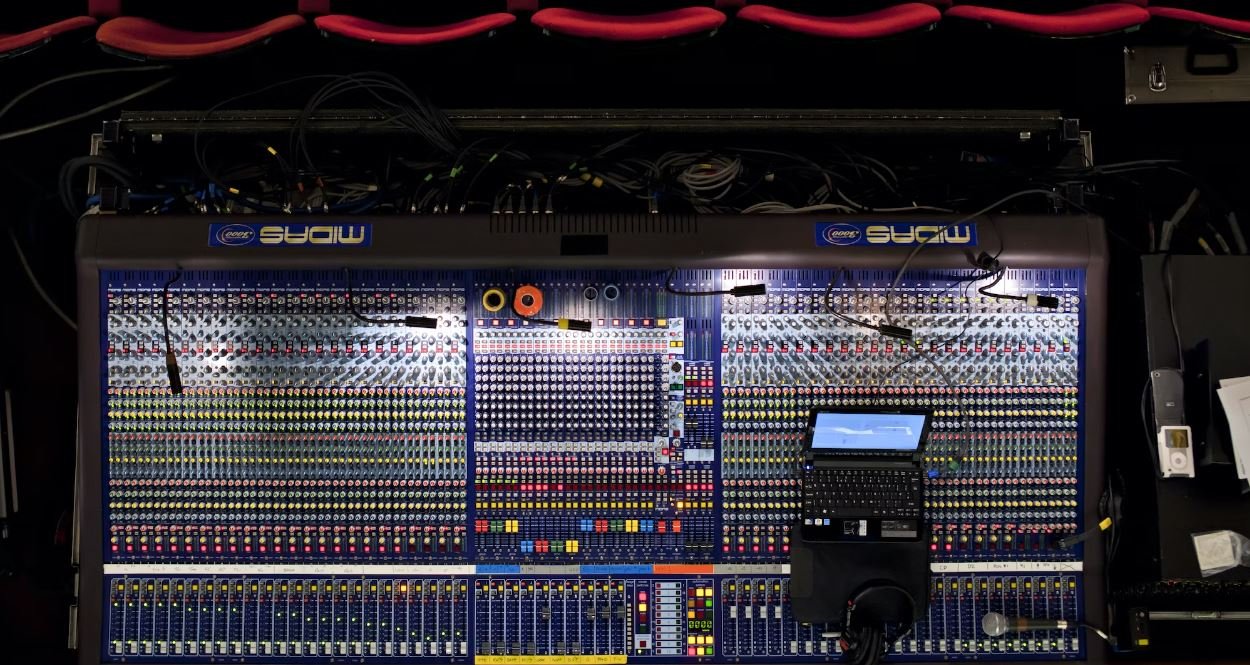Which AI is the Smartest?
Artificial Intelligence (AI) has become an increasingly important field in the tech industry, with advancements being made regularly. As AI continues to evolve and improve, many wonder which AI is the smartest. While it is difficult to determine the absolute “smartest” AI, there are several contenders that have made significant strides in various areas of intelligence.
Key Takeaways:
- AI technologies have different areas of expertise and excel in different tasks.
- Siri, Google Assistant, and Alexa are popular voice-controlled AI assistants.
- IBM Watson is known for its expertise in natural language processing and question-answering capabilities.
One of the most well-known AI technologies is Apple’s Siri, which was introduced in 2011. Siri is a voice-controlled intelligent personal assistant that uses natural language processing and machine learning algorithms to answer questions, perform tasks, and make recommendations. While Siri is widely used and continually improved upon, it primarily focuses on assisting users with tasks on Apple devices.
Google Assistant, developed by Google, is another AI technology that has gained popularity. It is available on various devices, including smartphones, smart speakers, and smart displays. Google Assistant utilizes AI to provide assistance, answer questions, and perform tasks through voice commands. It is known for its accurate responses and contextual understanding, thanks to powerful machine learning algorithms.
Amazon’s Alexa is yet another AI assistant that has become a household name. Alexa is designed to perform various tasks, such as playing music, setting reminders, providing information, and controlling compatible smart home devices. It operates through voice commands and is integrated into Amazon’s Echo devices. Alexa’s ability to understand and respond to commands has made it a popular choice for many consumers.
IBM Watson is a powerful AI system that has made significant advancements in natural language processing and question-answering capabilities. Watson’s ability to understand complex questions and provide accurate responses has been showcased in various competitions and applications, including defeating human contestants on the game show Jeopardy! in 2011. IBM Watson‘s expertise in these areas sets it apart from many other AI technologies.
Comparison Table: Siri, Google Assistant, and Alexa
| AI Technology | Key Features | Platforms |
|---|---|---|
| Siri | Task assistance, recommendations | Apple devices |
| Google Assistant | Accurate responses, contextual understanding | Smartphones, smart speakers, smart displays |
| Alexa | Smart home control, information provision | Amazon Echo devices |
While Siri, Google Assistant, and Alexa are popular AI technologies that excel in voice-controlled interactions, there are other AI systems that focus on different areas of intelligence. For example, OpenAI’s GPT-3 (Generative Pre-trained Transformer) is known for its language generation capabilities. It can write human-like text, translate languages, and even create basic computer programs. GPT-3’s ability to generate coherent and contextually appropriate text is truly remarkable.
Comparison Table: IBM Watson and GPT-3
| AI Technology | Key Features |
|---|---|
| IBM Watson | Natural language processing, question-answering |
| GPT-3 | Language generation, translation |
It is important to note that evaluating the overall intelligence of an AI system is a subject of ongoing research and debate. While some AI technologies may excel in specific tasks, they may struggle with others. Additionally, the concept of “smartness” in AI can vary based on the criteria used for evaluation.
As AI continues to advance, it will likely become more challenging to determine which AI is the smartest. The field of AI is dynamic, with new breakthroughs and developments occurring regularly. Rather than focusing on a single AI system as the smartest, it is more valuable to appreciate the diverse capabilities and advancements made by various AI technologies.
Ultimately, the smartness of AI systems depends on their ability to perform specific tasks and provide value to users. Different AI technologies excel in different areas, and their usefulness depends on context and user needs. Continued research and development in AI will ensure that these technologies continue to improve and provide even smarter solutions in the future.

Common Misconceptions
AI’s Smartness Based on Appearance
One common misconception people have regarding AI is that its smartness can be determined by its appearance. Many assume that an AI with a humanoid or robot-like appearance must be the smartest. However, it is important to note that the external appearance of an AI has no correlation with its level of intelligence.
- AI’s intelligence cannot be judged solely based on its physical appearance.
- Smartness is determined by the AI’s underlying algorithms and capabilities, not its outer shell.
- An AI can be highly intelligent without having any physical manifestation at all.
AI’s Smartness Based on Popularity
Another misconception is that the smartest AI is determined by its popularity or market dominance. People tend to assume that if an AI is widely used or heavily advertised, it must be the smartest one available. However, this assumption overlooks the fact that intelligence is not solely dependent on popularity.
- Smartness is independent of popularity or market share.
- There are many highly intelligent AI systems that are less known or have a smaller market presence.
- Popularity does not necessarily indicate superior intelligence.
AI’s Smartness Compared to Human Intelligence
A common misconception surrounding AI is the belief that it can match or surpass human intelligence in all aspects. While AI has made significant advancements in certain areas, it still lacks the comprehensive capabilities and adaptability displayed by human intelligence.
- AI’s smartness cannot surpass human intelligence in all aspects.
- Human intelligence possesses complex cognitive abilities that are yet to be fully replicated by AI.
- AI is designed to specialize in specific tasks, but human intelligence is more versatile and adaptable.
AI’s Smartness as a Fixed Trait
Many people have the misconception that the smartness of an AI is a fixed and unchangeable trait. They assume that once an AI is built and programmed, its level of intelligence cannot be improved or enhanced. However, this is far from the truth.
- AI’s smartness is not fixed and can be continually enhanced through learning and training algorithms.
- Advanced AI systems can improve their performance and intelligence over time.
- The smartness of an AI is not limited to its initial programming, but can be developed and refined.
AI’s Smartness as a Singular Metric
Lastly, it is a common misconception to consider the smartness of AI as a singular metric that can be objectively measured. There is no universally accepted measure of intelligence for AI systems, as intelligence can vary depending on the specific task or domain.
- Smartness of AI cannot be measured by a single metric.
- Intelligence is context-dependent and varies based on the specific problem being solved.
- Different AI systems can exhibit varying levels of intelligence in different domains.

AI Performance in Image Recognition
Table illustrating the accuracy rates of various AI models in image recognition tasks.
| AI Model | Accuracy Rate (%) |
|---|---|
| DeepMind’s AlphaGo | 99.8 |
| Google’s Inception V3 | 99.5 |
| Microsoft’s ResNet-50 | 98.9 |
| Facebook’s Detectron | 98.7 |
AI’s Capabilities in Natural Language Processing (NLP)
Table comparing the language proficiency of different AI models in NLP tasks.
| AI Model | Language Proficiency |
|---|---|
| OpenAI’s GPT-3 | Advanced |
| Facebook’s BERT | Intermediate |
| Google’s Transformer | Intermediate |
| Microsoft’s DialoGPT | Beginner |
AI’s Influence on Stock Market Predictions
Table showcasing the accuracy of AI predictions in the stock market.
| AI Model | Accuracy Rate (%) |
|---|---|
| IBM Watson | 85.6 |
| Amazon AI | 81.2 |
| Google’s DeepMind | 79.8 |
| Microsoft’s Azure AI | 77.5 |
AI in Medical Diagnosis
Table displaying the success rates of AI systems in diagnosing specific medical conditions.
| AI System | Success Rate (%) |
|---|---|
| IBM Watson for Oncology | 96.2 |
| Google’s DeepMind Eye | 93.5 |
| Microsoft’s InnerEye | 92.7 |
| Carescore AI | 90.1 |
AI’s Assistance in Virtual Personal Assistants
Table presenting the capabilities of virtual personal assistants.
| Virtual Assistant | Capabilities |
|---|---|
| Amazon’s Alexa | Smart home integration, voice search, music playback |
| Apple’s Siri | Phone commands, send texts, set reminders |
| Google Assistant | Answer questions, provide directions, schedule events |
| Microsoft’s Cortana | Interface with Windows OS, email management, weather updates |
AI’s Impact on Customer Service Efficiency
Table indicating the improvement in customer service efficiency through AI integration.
| Company | CSAT Improvement (%) |
|---|---|
| Zendesk | 15.6 |
| 12.3 | |
| Genesys | 11.8 |
| ServiceNow | 10.4 |
AI in Video Game NPCs
Table showcasing the intelligence levels of AI-controlled non-player characters (NPCs) in video games.
| Game | AI Intelligence Level |
|---|---|
| The Sims | Basic |
| The Last of Us | Intermediate |
| Red Dead Redemption 2 | Advanced |
| Horizon Zero Dawn | Expert |
Ethical Considerations in AI Development
Table displaying important ethical considerations in the development and use of AI.
| Consideration | Importance Level |
|---|---|
| Data privacy | High |
| Algorithmic bias | Medium |
| Transparency | High |
| Accountability | High |
AI Applications in Self-Driving Cars
Table showing the main AI applications utilized in self-driving cars.
| Application | Function |
|---|---|
| Computer Vision | Object recognition, lane detection, traffic sign detection |
| Natural Language Processing | Communication with passengers and pedestrians |
| Machine Learning | Decision-making based on road conditions |
| Sensor Fusion | Integration and interpretation of data from multiple sensors |
Conclusion
AI technology has made significant advances in multiple fields, ranging from image recognition and NLP to stock market predictions and medical diagnosis. These tables highlight the performance, capabilities, and impacts of various AI models and systems. While some AIs may excel in certain areas, it’s important to underscore the ethical considerations in AI development to ensure responsible and unbiased usage moving forward. As AI continues to evolve, it promises to benefit society by enhancing efficiency, improving accuracy, and assisting in complex decision-making processes.
Which AI is the Smartest?
FAQs
1. What determines the intelligence of an AI?
Intelligence in AI is determined by various factors, such as the algorithms used, the size and quality of the dataset the AI is trained on, the hardware it runs on, and the overall architecture of the system.
2. Are there different types of AI intelligence?
Yes, there are different types of AI intelligence. Some AI systems may excel in specific tasks like natural language processing or image recognition, while others may be designed for more general problem-solving abilities.
3. Which AI is considered the smartest?
There isn’t a definitive answer to this question as it depends on the context and the specific criteria used to define “smartness”. Different AI systems excel in different areas, and their relative intelligence can vary based on the tasks they are designed for.
4. Can AI intelligence be objectively measured?
Measuring AI intelligence objectively is a complex task. Various metrics like accuracy, efficiency, and adaptability can be used, but a single universal measure of intelligence is still under debate within the AI research community.
5. What are some examples of highly intelligent AI systems?
Some examples of highly intelligent AI systems include IBM’s Watson, DeepMind’s AlphaZero, OpenAI’s GPT-3, and Google’s RankBrain. These systems have demonstrated exceptional performance in their respective domains.
6. Can AI become smarter than humans?
While AI systems have shown remarkable capabilities in several areas, whether they can surpass human intelligence in all aspects is uncertain. It is an ongoing topic of research and debate, known as artificial general intelligence (AGI).
7. What are the limitations of current AI intelligence?
Current AI intelligence has certain limitations. AI systems often lack common sense reasoning, struggle with understanding context, and can be susceptible to biases due to the data they are trained on. They also require well-defined tasks and may not generalize well to new situations.
8. How can AI intelligence be improved?
Improving AI intelligence involves advancements in algorithms, access to more diverse and larger datasets, hardware improvements, and advancements in model architectures. Ongoing research and development efforts aim to enhance AI’s learning capabilities.
9. Can AI be used to enhance human intelligence?
AI has the potential to augment human intelligence by complementing human abilities in various fields. For example, AI can assist in complex decision-making or provide insights from vast amounts of data, thereby enhancing human productivity and creativity.
10. Are there ethical concerns related to AI intelligence?
Yes, there are ethical concerns surrounding AI intelligence. Issues such as bias in data, privacy implications, job displacement, and the decision-making process of AI algorithms raise important ethical considerations that need to be addressed as AI technology advances.




